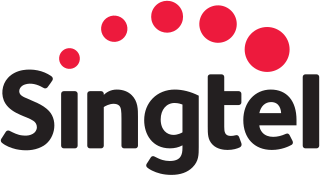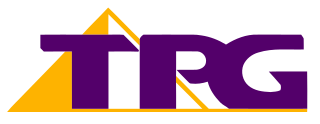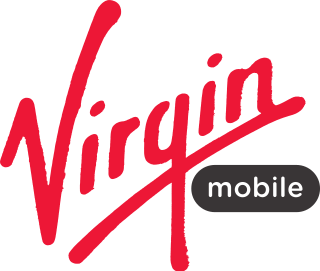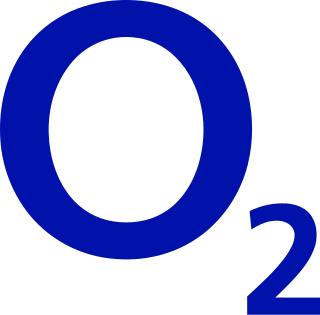Singtel Optus Pty Limited is an Australian telecommunications company headquartered in Macquarie Park, a suburb in the Northern Sydney region of Sydney, New South Wales, Australia. It is a wholly owned subsidiary of Singaporean telecommunications company Singtel.

Singapore Telecommunications Limited, doing business as Singtel, is a Singaporean telecommunications conglomerate, the country's principal fixed-line operator and one of the four major mobile network operators operating in the country.

Spark New Zealand Limited is a New Zealand telecommunications and digital services company providing fixed-line telephone services, mobile phone services, broadband, and digital technology services. Its customers range from consumers to small - medium business, government agencies and large enterprise clients. It was formerly known as Telecom New Zealand until it was rebranded to Spark on 8 August 2014. It has operated as a publicly traded company since 1990. Spark's mobile network reaches 98% of New Zealand, with over 2.5 million mobile connections and 704,000 broadband connections

TPG is an Australian internet service provider that specialises in consumer and business internet services as well as mobile telephone services. As of August 2015, TPG is the second largest internet service provider in Australia and is the largest mobile virtual network operator. As such, it has over 671,000 ADSL2+ subscribers, 358,000 landline subscribers and 360,000 mobile subscribers, and owns the second largest ADSL2+ network in Australia, consisting of 391 ADSL2+ DSLAMs. It also operates in New Zealand.

Virgin Mobile is a wireless communications brand used by seven independent brand-licensees worldwide. Virgin Mobile branded wireless communications services are available in the United Kingdom, Ireland, Canada, Colombia, Chile, Kuwait, Saudi Arabia, United Arab Emirates, Poland and Mexico. Virgin Mobile branded services used to be offered in Australia, France, Singapore, India, Qatar, South Africa and the United States.

Vodafone Ireland Limited, a wholly owned subsidiary of Vodafone Group, is a mobile phone network, broadband and TV provider in Ireland. It was created when the Vodafone Group bought Eircell, the mobile arm of Telecom Éireann. As of September 2019, Vodafone has 26% of broadband subscribers, and 43% of mobile phone subscribers.

Telefónica Ireland was a broadband and telecommunications provider in Ireland that traded under the O2 brand (typeset as O2). O2 Ireland was previously called Esat Digifone when it was owned by Esat Telecommunications (and Telenor) from 1997 to 2006.

Austar was an Australian telecommunications company founded in 1995 as Community Entertainment Television (CETV). Its main business activity was subscription television. It was also involved with internet access and mobile phones.

TracFone Wireless, Inc. (TFWI) was an American wireless service provider. It was a mobile virtual network operator offering prepaid and no-contract service on the AT&T Mobility, T-Mobile US, and Verizon networks under multiple brands, including TracFone, Net10 Wireless, GoSmart Mobile, Page Plus Cellular, SafeLink Wireless, Simple Mobile, Total Wireless, and Straight Talk Wireless.
A data cap, often referred to as a bandwidth cap, is a restriction imposed on data transfer over a network. In particular, it refers to policies imposed by an internet service provider to limit customers' usage of their services; typically, exceeding a data cap would require the subscriber to pay additional fees. Implementation of a data cap is sometimes termed a fair access policy, fair usage policy, or usage-based billing by ISPs.
TransACT is the trading name of TransACT Capital Communications, an Australian telecommunications company based in Canberra which provides broadband internet access, fixed telephony, cable television services, and mobile phone services in Canberra and a subset of these services in Queanbeyan, throughout South-east New South Wales and in Victoria.
Subscription television in Australia is provided using technologies such as cable television, satellite television and internet television by a number of companies unified in their provision of a subscription television service. Notable actors in the sector include Foxtel, Netflix and Stan. Regulation of the sector is assured by the Australian Communications and Media Authority.

Bharti Airtel Limited is an Indian multinational telecommunications services company based in New Delhi. It operates in 18 countries across South Asia and Africa, as well as the Channel Islands. Currently, Airtel provides 5G, 4G and LTE Advanced services throughout India. Currently offered services include fixed-line broadband, and voice services depending upon the country of operation. Airtel had also rolled out its Voice over LTE (VoLTE) technology across all Indian telecom circles. It is the second largest mobile network operator in India and the second largest mobile network operator in the world. Airtel was named India's 2nd most valuable brand in the first ever Brandz ranking by Millward Brown and WPP plc.

BT Mobile is a mobile virtual network operator (MVNO) provided by BT Consumer; a division of BT Group in the United Kingdom that was launched in March 2015. It uses the EE network via an MVNO agreement signed in March 2014 as well as using the spectrum BT won in the 2013 4G auction. EE is now owned by BT following a successful acquisition that was officially completed on 29 January 2016. BT Mobile operates alongside BT Business Mobile which is provided by the BT Business and Public Sector division. BT Mobile launched as a SIM-only service and had more than 400,000 customers as of 5 May 2016. BT Mobile stopped accepting new consumer customers in October 2023, as part of plans by the BT Group to make EE the main brand of the consumer business.

AGL Energy Ltd is an Australian listed public company involved in both the generation and retailing of electricity and gas for residential and commercial use. AGL is Australia's largest electricity generator, and the nation's largest carbon emitter. In 2022, 83% of its energy came from burning coal.

Data and Audio-Visual Enterprises Wireless, d/b/a Mobilicity, was a Canadian mobile virtual network operator (MVNO) owned by Rogers Communications. Its name was a portmanteau of the words "mobility" and "simplicity". Mobilicity was one of several new mobile network operators, along with Public Mobile and Wind Mobile, which launched in Canada after a government initiative to encourage competition in the wireless sector. The carrier had over 250,000 Mobilicity subscriptions on May 16, 2013, the day in which Telus announced its failed attempt to acquire Mobilicity. The subscription count decreased to 157,000 by April 2015 according to court documents filed by Mobilicity's Chief Restructuring Officer in that month.

Click Energy is an Australian energy retailer selling electricity to private and business customers in Victoria, New South Wales, South Australia and Queensland.
AusBBS was an Australian Internet service provider (ISP) offering Internet and phone services. It was one of the first ISPs to launch with a specific focus on Australia's National Broadband Network (NBN) which is being rolled out by the Federal Government via the fully owned NBN Co. Providers such as AusBBS have also been referred to as Retail Service Providers (RSPs) since the commencement of the NBN.
MyRepublic Group Limited is a Singaporean communications service provider. Launched in 2011, MyRepublic currently operates in Singapore and licenses its platform to operators in Brunei and Indonesia.

Southern Phone is an Australian telecommunications company. It is located at Moruya, New South Wales. Southern Phone was established in 2002. It operated as an unlisted public company until December 2019. It was acquired by AGL Energy for A$27.5 million from 35 district councils.














